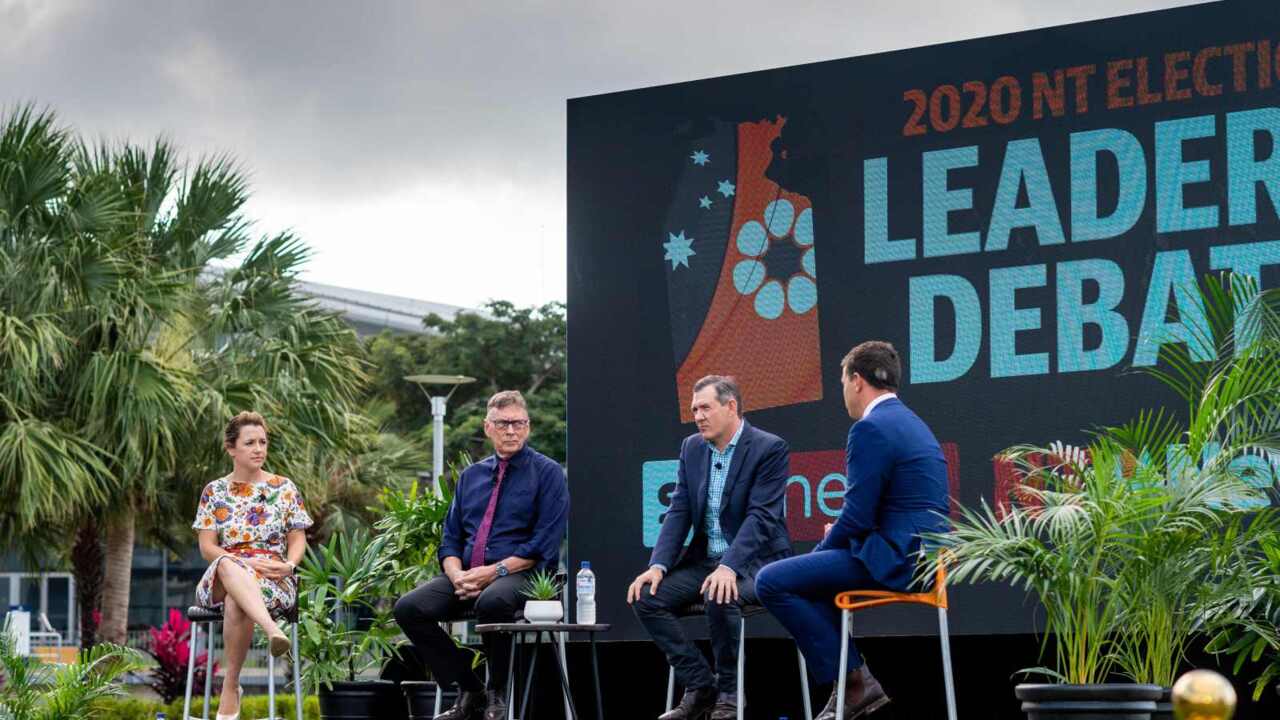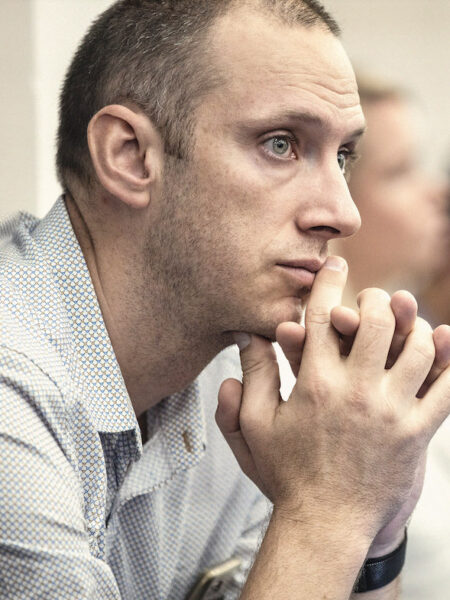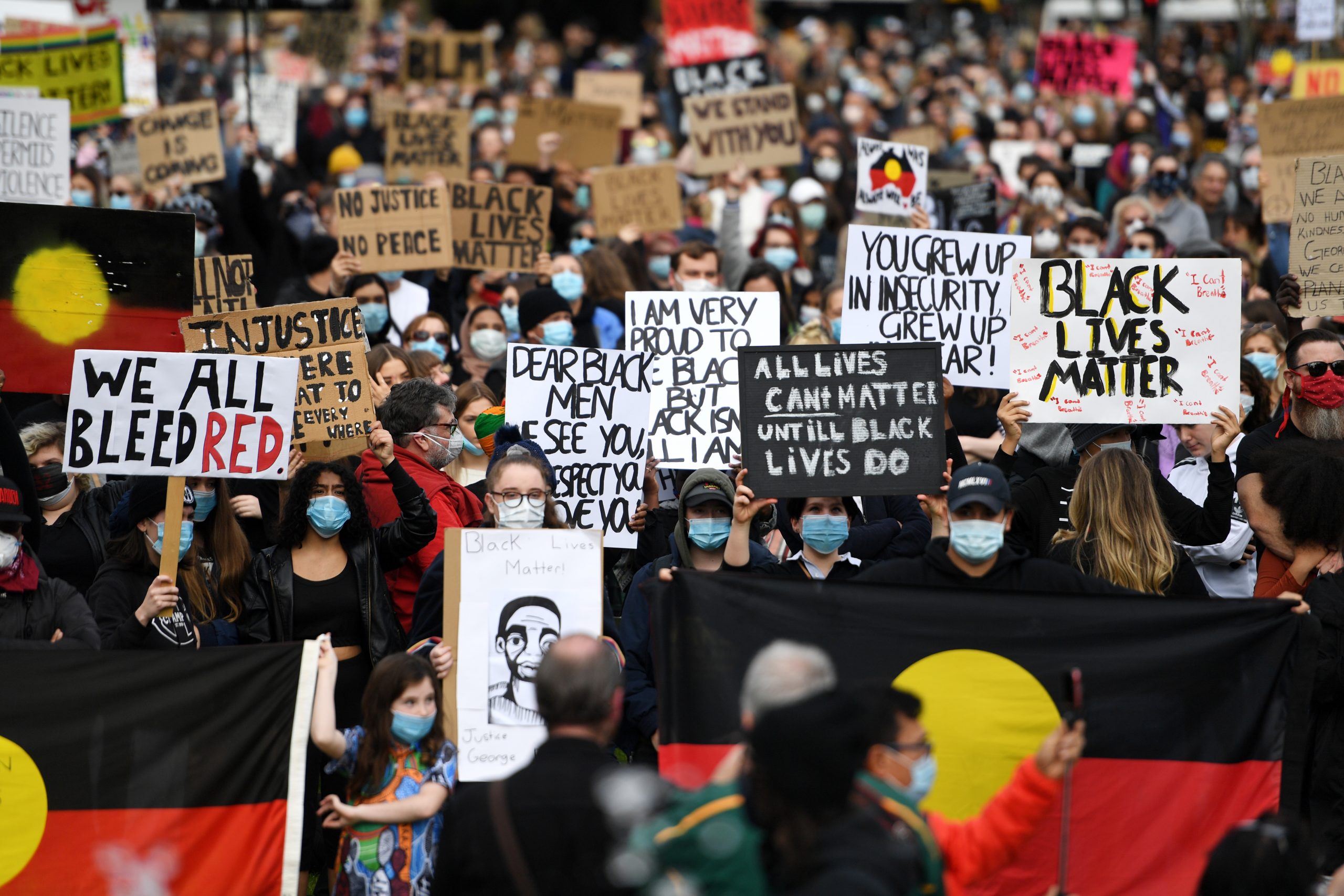The Gunner Labor Government, elected four years ago in a landslide and under the shadow of the revelations coming out of the Don Dale Detention Centre, after a promising start has been underwhelming to say the least.
The NT’s Country Liberal Party has been even more listless after the drubbing it received in the 2016 Election. In 2020, the Territory has a new party – Territory Alliance – led by former CLP Chief Minister Terry Mills and looking to supplant one of the two traditional major parties in Territory politics.
So what does this all mean for First Nations peoples in the Northern Territory?
Firstly, the population of Aboriginal people in the Territory is over 30 per cent and growing. Traditional owners have about half of the Territory’s land back in their possession and they have significant agency in determining who governs in the Northern Territory from election to election.
There are 111 candidates contesting for the 25 seats in the Legislative Assembly, and yet the major parties have only seven Aboriginal candidates standing for them (5 for Labor and just 2 for the CLP), with a number of other First Nations candidates standing as independents. Not all of these candidates are running in safe seats and it brings to question the rhetoric of the major parties to have more equitable representation in our parliaments – and particularly in the NT where the Aboriginal population is such a significant portion of the population.
There are also the usual concerns about enrolment and participation in the election for those in remote parts of the Territory (where much of the Aboriginal population is) and with limited work to engage with communities to get on the roll and access to voting. The enrolment rate for Aboriginal people in the NT is way behind the non-Indigenous population, and lags the enrolment of First Nations peoples in other jurisdictions (other than South Australia) which is even more problematic when you consider their collective weight in the population in the Territory. In the current political process, the ability to participate in Elections is the only Voice that Aboriginal and Torres Strait Islander people are given but with poor enrolment numbers and less than equitable representation in the candidates standing, the Territory needs to do much better in addressing these issues.
What about the issues?
Closing the Gap
This Election is taking place during the most disruptive pandemic crisis in 100 years, and like everywhere else, how the parties plan to protect and provide for Territorians during Covid-19 is the big question.
The Gunner Government was reasonably quick to close its borders and there was a lot of early coverage about the need to protect the remote Aboriginal communities from infection – knowing that their pre-existing health burdens and the long-standing issues with access to health care would have an outsized, even catastrophic impact on them. While the Government can take credit for its decision to close the borders, the Aboriginal Health leadership, particularly in the Community Controlled health sector has been critical to protecting and preparing Aboriginal communities to deal with the pandemic crisis.
What the pandemic has done in Australia, and the Territory in particular is reinforce (once again) the glaring disparities in health outcomes and life expectancy between First Nations peoples and their non-Indigenous fellow citizens. The annual Closing the Gap Report in February 2020, showed that the Territory was only on track to meet one (1) of the seven (7) targets for Closing the Gap and was failing on child mortality and life expectancy targets.
There is bi-partisan support for the new National Agreement on Closing the Gap which includes the NT Government – much will be riding on the success of this new attempt to Close the Gap. Whoever forms Government in the NT next week will need to demonstrate their commitment to this new agreement with some real investment and partnership with the Aboriginal leadership in the communities.
Justice
Frustratingly, as is all too common these days, much of the election will be fought over who can seem tougher on law and order issues. As mentioned at the beginning, the first few years of the Gunner Government coincided with the fallout from the revelations of abuse at the Don Dale Juvenile Detention Centre and the subsequent Royal Commission led by Mick Gooda and Margaret White.
The NT Royal Commission found that – ‘shocking and systemic failures occurred over many years [which] were known and ignored at the highest levels’ and that:
Children in detention were denied basic human needs, and the system failed to comply with basic human rights standards and safeguards, including the Convention on the Rights of the Child.
After some promising signs of commitment to fix the mess in juvenile detention, where close to 100 per cent of youth detained are Aboriginal, the Gunner government has stalled or reversed reforms recommended by the Royal Commission.
Territory Labor, the CLP and Territory Alliance are all spouting the usual buzz words around prevention and consultation but without any firm commitments to fundamental change in the how the justice system works in the Territory.
The Making Justice Work Campaign in the NT brings together a coalition of Aboriginal and community peak and advocacy organisations calling on the NT government to make real changes. The Campaign has five priorities that must be adopted by the next NT Government as a matter of urgency, including:
- Supporting children to be in community rather than detention
- Culturally safe, therapeutic courts and processes including family group conferencing
- Investing in Community-led early intervention and reintegration programs
- Hold the line on alcohol harm-minimisation measures; and
- Resourcing the Aboriginal Justice Agreement.
These priorities need to be pursued in entirety and the last priority about resourcing the Aboriginal Justice Agreement is essential. The Agreement is under development and the NT Government has recently completed its consultation process on the draft and it needs to adopt the advice given by Aboriginal leaders in the Justice sector in the Territory. It also needs to be properly resourced… all too often we see Government policy plans determined and then they drift into irrelevance because there is new real commitment given to them.
Another ‘tough on crime’ arms race between the parties is contrary to the recommendations of the Royal Commission and the intent of its own proposed Justice Agreement. It is also perplexing that on one hand the Government can be pursuing this type of Justice agreement while maintaining the policy of locking up children as young as 10 years old for adult crimes. The NT Government isn’t the only government caught in this hypocrisy but this is unacceptable – the next Government must Raise The Age.
The Northern Territory is the worst jurisdiction in the world (per capita) in terms of Indigenous incarceration. Whomever forms government after this weekend will be without excuse when it comes to this issue. The Federal government needs to play its part in the justice issues that malign and discriminate against First Nations peoples across Australia, but the Northern Territory is ground zero and the lives of young Aboriginal kids being locked up are being ruined at an industrial scale.
Treaty
Finally, the issue of Treaty has been on the agenda since the Gunner Government signed the Barunga Agreement with the four main Territory Land Councils in June 2018. The Agreement initiated a process of exploration and consultation to consider what treaty might look like in the Northern Territory. Professor Mick Dodson was appointed the NT Treaty Commissioner and after a 2 year consultation process, released an Interim Report in May this year.
While it will be a long, drawn out process, the Gunner Labor Government continues to support a Treaty process for the Territory and it should be commended for its leadership, although very tentative, to date.
The CLP has largely been silent on the treaty process but based on past comments has the standard conservative position of disregarding treaty as largely symbolic and a distraction from more ‘practical’ policies.
Territory Alliance hasn’t said much either but has expressed general support for the Uluru Statement (including the call for a treaty process) without offering any specifics.
Putting aside the historical and legal implications for Australian jurisdictions about having a reconciled relationship with First Nations without addressing the unfinished business of treaty, a treaty process offers a fundamental mechanism to address all the key issues and priorities of Aboriginal Territorians and we hope that the great work of Commissioner Dodson and his team will be honoured and considered by the next NT Government.
Making your vote count?
We are not in the business of endorsing any particular party, but it is really important that our friends in the Northern Territory weigh up the positions and policies of each of the parties asking to form Government from Saturday and understand the implications of their vote for the First Nations people of the Territory.
From the Larrakia nation to the Warlpri, the Yolgnu nation to the Arrente peoples and all the First Nations across the Territory are to be respected and supported and it begins with the political process – we must collectively demand much more from our elected parliamentarians and expect change that works for Aboriginal and Torres Strait Islander peoples everywhere.
You can see the policy platforms of each of the three main contesting Parties at…
Territory Labor
Country Liberal Party
Territory Alliance



